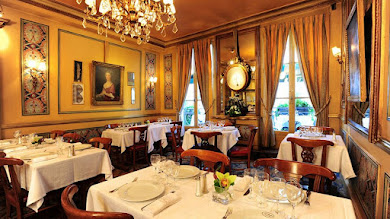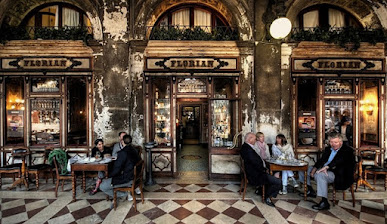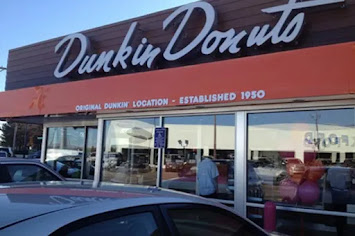Coffee Houses
Coffeehouses
I spent several years of my working career overseeing construction and opening of multiple Coffee Culture® locations throughout Ontario and a Java Café® in China, but are they coffeehouses? If so, what makes them a “Coffeehouse”? Merriam-Webster.com defines a coffeehouse as: “a business that sells coffee and usually other refreshments and that often serves as an informal club for its regular customers”.Le Procope, in Paris, opened its doors in 1689. This was a café for intellectuals and politicians. It was frequented by Voltaire, Rousseau, Diderot and d’Alembert. The original café closed in 1872, however it reopened in the 1920’s.
Caffè Florian, Established in 1720 is the oldest continuously operated coffee house in the world. It was the only coffeehouse that, at the time, allowed women and was thus patronized by dignitaries like Charles Dickens, Casanova, and Lord Byron. When in Venice do as the Venetians do, stop by for an espresso.
Café Central opened in 1876, and in the late 19th century it became a key meeting place of the Viennese intellectual scene. The café was often referred to as the "Chess school" because of the presence of many chess players who used the first floor for their games.
Caffe Reggio, a famous New York City coffeehouse opened in 1927. Here, founder Domenico Parisi, introduced America to Italian Cappuccino. His original espresso machine is still there against the back wall. In addition to introducing Cappuccino, Caffe Reggio has also been featured in many movies including The Godfather Part II, Next Stop Greenwich Village, Shaft, Serpico and The Kremlin Letter to name a few.
The start of chain coffeehouses probably began with the Open Kettle, a restaurant in Boston which in 1950 changed its name to Dunkin Donuts. Bill Rosenberg, the founder, conceived the idea for his restaurant after seeing that food sales in factories and construction sites were predominantly donuts and coffee. Other international coffee chains soon followed: Tim Hortons in 1964 and Starbucks and Costa Coffee in 1971
Today, coffee houses are not much different than they were hundreds of years ago. They often serve pastries, teas, soft drinks, and other delicacies, but customers still congregate to enjoy delicious coffee and discuss important matters like news, business, and politics. We’ve added studying and some casual conversation to the mix, as well as all sorts of electronics, but the concept remains largely unchanged.
How do you like your Coffee? Find out more coming up next.











Comments
Post a Comment